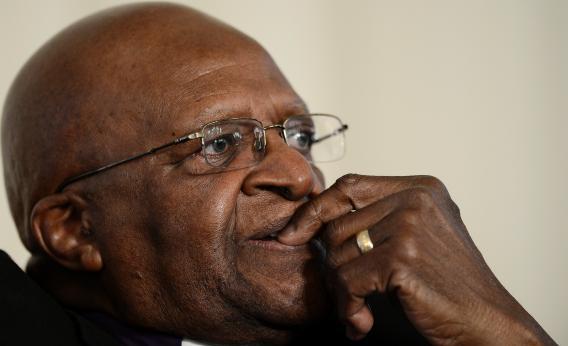Flip on through to Page A26 of this morning’s New York Times (or, alternatively, just click here), and you’ll discover a letter to the editors from 1984 Nobel Peace Prize-winner Desmond Tutu. So what prompted the retired bishop to write to the paper from aboard the MV Explorer (“near Hong Kong”)? Drones. Specifically, the possibility of the U.S. government creating a special judicial review court to sign off on the targeted killing of Americans believed to be terrorists. Tutu’s problem isn’t with the idea of a review court itself but instead with the concept of the two very different standards it would create, one for U.S. citizens and one for everyone else.
Do the United States and its people really want to tell those of us who live in the rest of the world that our lives are not of the same value as yours? That President Obama can sign off on a decision to kill us with less worry about judicial scrutiny than if the target is an American? Would your Supreme Court really want to tell humankind that we, like the slave Dred Scott in the 19th century, are not as human as you are? I cannot believe it.
I used to say of apartheid that it dehumanized its perpetrators as much as, if not more than, its victims. Your response as a society to Osama bin Laden and his followers threatens to undermine your moral standards and your humanity.
The idea of a special court to review drone strikes is one that has been around for some time, but the concept seamed to pick up some fresh steam at last week’s confirmation hearing of John Brennan, where both the CIA director-nominee and a handful of powerful senators talked openly about the possibility. Most of that discussion centered around the idea of a review court in general, and not necessarily one that’s limited to Americans. That said, as the Times pointed out in the piece that apparently caught Tutu’s attention, if a court were to be created most expect that its jurisdiction would be limited to U.S. citizens: “if the court’s jurisdiction extended to every foreign terrorism suspect, even some proponents believe, it might infringe on the president’s constitutional role as commander in chief.”
